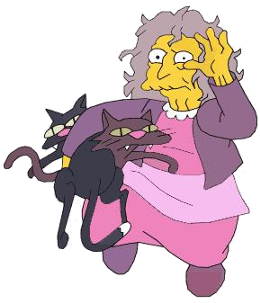To-do Lists: The Sleep Aid of the 21st Century?

Crew.co
Writing a 'to-do' list at bedtime may aid in falling asleep, according to a new study.
Can't get your mind to slow down and let you get some sleep? Write out a to-do list.
According to this research, this simple chore will help you sleep. Either because it clears your mind of random thoughts about what you have to do tomorrow, or, as in my case, my life is so tedious and unremarkable, I fall asleep from simple boredom.
But no matter why it works, give it a try.
* * * * *
Can writing your 'to-do's' help you to doze?
Study suggests jotting down tasks can
Some 40 percent of American adults report difficulty falling asleep at
least a few times each month, according to the National Sleep Foundation.
Writing a "to-do" list at bedtime may aid in falling asleep, according to a Baylor University study. Research compared sleep patterns of participants who took five minutes to write down upcoming duties versus participants who chronicled completed activities.
"We live in a 24/7 culture in which our to-do lists seem to be constantly growing and causing us to worry about unfinished tasks at bedtime," said lead author Michael K. Scullin, Ph.D., director of Baylor's Sleep Neuroscience and Cognition Laboratory and assistant professor of psychology and neuroscience. "Most people just cycle through their to-do lists in their heads, and so we wanted to explore whether the act of writing them down could counteract nighttime difficulties with falling asleep."
The study of 57 university students, conducted in Baylor's Sleep Neuroscience and Cognition Laboratory, was published in the American Psychological Association's Journal of Experimental Psychology.
"There are two schools of thought about this," Scullin said. "One is that writing about the future would lead to increased worry about unfinished tasks and delay sleep, while journaling about completed activities should not trigger worry.
"The alternative hypothesis is that writing a to-do list will 'offload' those thoughts and reduce worry," he said.
While anecdotal evidence exists that writing a bedtime list can help one fall asleep, the Baylor study used overnight polysomnography, the "gold standard" of sleep measurement, Scullin said. With that method, researchers monitor electrical brain activity using electrodes.
Participants stayed in the lab on a week night to avoid weekend effects on bedtime and because on a weekday night, they probably had unfinished tasks to do the next day, Scullin said. They were divided into two randomly selected groups and given five-minute writing assignments before retiring. One group was asked to write down everything they needed to remember to do the next day or over the next few days; the other to write about tasks completed during the previous few days.
Students were instructed they could go to bed at 10:30 p.m., and "we had them in a controlled environment," Scullin said. "We absolutely restricted any technology, homework, etc. It was simply lights out after they got into bed."
Scullin noted that while the sample size was appropriate for an experimental, laboratory-based polysomnography study, a larger future study would be of value.
"Measures of personality, anxiety and depression might moderate the effects of writing on falling asleep, and that could be explored in an investigation with a larger sample," he said. "We recruited healthy young adults, and so we don't know whether our findings would generalize to patients with insomnia, though some writing activities have previously been suggested to benefit such patients."
The research was partially funded by a National Institutes of Health grant and the Sleep Research Society Foundation.
Story Source: Materials provided by Baylor University. Michael K. Scullin, Madison L. Krueger, Hannah K. Ballard, Natalya Pruett, Donald L. Bliwise. The effects of bedtime writing on difficulty falling asleep: A polysomnographic study comparing to-do lists and completed activity lists.. Journal of Experimental Psychology: General, 2018.

Comments
Post a Comment